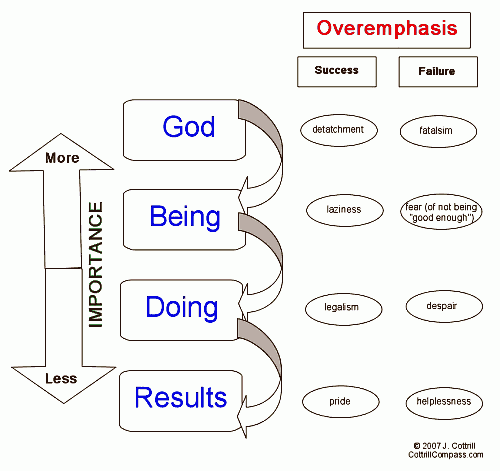Christians are religious. No they’re not. Or…
Are Christians religious?
 |
I have a feeling that question brings out some passionate responses in a lot of people. For some, it’s an emotionally loaded issue.
It could be argued that it’s really a question of semantics. Both the words "Christian" and "religious" are widely open to interpretation. Christian probably started out as a derogatory term (in what is now Antakya, Turkey), and is now often used in a pretty general way based on heritage. Religious – well, we’re getting to that.
But if you’re a follower of Jesus, are you religious? If your answer is yes, should you admit it?
I’m going to offend just about everyone by saying that, no, Christians are not religious. AND… yes, they are.
It’s been fairly fashionable for most of my lifetime to say that Christians are not religious. I know, people are pulling this out now like it’s a new idea, but really it’s not.
Some of the arguments went like this:
- Christianity is not a set of outward rituals, but a heart-change
- Christianity is not things you must do, but a relationship with God
- Christianity is not about organs, pews and dressing up on Sunday, it’s an inward change
- Christianity is not "just another religion" but something different
- Religion is man’s effort to reach God, Christianity is God reaching out to man (who came up with this one? Just curious.)
There’s a lot of truth here (if a tad simplistic!). I appreciate the effort to distance Christianity from …. well, trying to find salvation in a bunch of rules and rituals. It is all about inward change, and a relationship. This theme is repeated over and over in the Bible – following laws won’t save or transform you, it takes a work of God on the inside (see Gal 3:23-25 and Rom 3:10-27).
What does the Bible say about religion? Religion isn’t a word commonly used of Christianity. In Col 2:16-3:17 Paul contrasts human religion with the reality in Christ. Human religion is a bunch of self imposed rules and false humility. Christianity is a new life in Christ, in which we obey His commands.
James talks about religion as well, in a rather ironic way. While assuming Christianity is a "religion", he actually talks about it as a kind of anti-religion. Not so much concerned with ritual, pure religion to James is controlling your tongue, visiting orphans and widows, and keeping unstained from the world (Jam 1:26-27). The Bible, it would seem, is rather suspicious of the term religion.
 |
On the other hand, look at it from the perspective of Joe I-don’t-believe-anything, or Sam I-ain’t-a-Christian. Should you, a "Christian", say you’re not religious?
On the pro side, you’re distancing yourself from organs and pews, not eating ice cream on Sunday and whatever other rules you can think of. You’re distancing yourself from "organized religion", which many people have had a bad experience with. You’re focusing on something more relational, vital, real.
But then, lo and behold – you’re a member of a group with a common set of beliefs (Rom 6:17). You get together with this group and perform rituals – like baptisms (Mat 28:19) and communion (1Cor 11:23-26). You have a life focused around God and what you believe He wants you to do (Rom 12:1-2).
Boy, that sure sounds like a religion to me! And … er … doesn’t following a religion make you religious?
If I were Joe I-don’t-believe-anything or Sam I-ain’t-a-Christian, I think I’d feel a little condescended upon, or, worse, manipulated, if I were told someone like this wasn’t religious.
- Wikipedia: A religion is a set of common beliefs and practices generally held by a group of people, often codified as prayer, ritual, and religious law.
- Mirrian-Webster: religious – relating to or manifesting faithful devotion to an acknowledged ultimate reality or deity
- Oxford: religious – of, concerned with, or believing in a religion.
- Oxford: religion – a particular system of faith and worship. or the belief in and worship of a superhuman controlling power, especially a personal God or gods.
Sounds like Christians are religious to me.
By almost any normal definition of the word, Christians are religious, and Christianity is a religion. But we have to admit Christianity is different. It is focused on God reaching us, not us reaching for God. We aren’t Christians because we follow rules and rituals – it’s all about God’s grace toward us. Pews and organs and abstaining from this or that – these aren’t defining factors of our faith, and people need to realize that.
So in the end, how would you answer? Would it depend on who was asking? In what context? If you’re not a Christian, do you consider yourself religious? Why or why not?
Are you religious?



